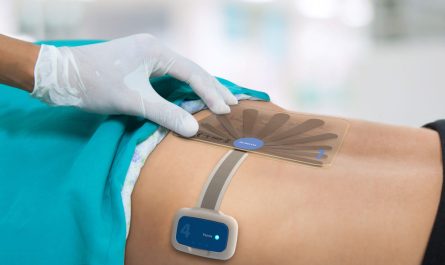Defining Biomarkers
A biomarker can be defined as a measurable indicator of some biological state or condition. In medical terms, biological maker are often measures of normal biological processes, pathogenic processes, or responses to therapeutic or other interventions which can be used in diagnosis or prognosis of disease or as indicators of potential disease. Biological maker can be molecules secreted by tissues and organs, or products of reactions between tissues and circulating substances. They can exist internally in bodily fluids such as blood, urine or externally on the skin surface.
Types of Biomarkers
There are several types of Biomarkers used in medical research and clinical applications. Diagnostic biological maker help in early detection of diseases even before the appearance of overt clinical symptoms. For instance, prostatespecific antigen (PSA) levels are used as a diagnostic biomarker for prostate cancer screening. Prognostic biological maker provide information about disease outcomes and are helpful in predicting the aggressiveness or severity of a disease. Examples include levels of tumor markers like CA15-3 and CA27.29 which are useful in predicting prognosis of breast cancer patients. Predictive biological maker help identify which patients are most likely to respond to a particular therapy. For example, expression of human epidermal growth factor receptor 2 (HER2) is a predictive biomarker used to identify breast cancer patients who will benefit from HER2-targeted therapies like trastuzumab. Pharmacodynamic biological maker measure the biological effects of a therapeutic substance on the body providing information about how an individual responds to a treatment.
Applications in Various Diseases
Biological maker play an important role in a variety of medical conditions including cancer, cardiovascular diseases, neurological disorders and many more. In oncology, tumor markers like prostate specific antigen (PSA), carcinoembryonic antigen (CEA) and cancer antigen 125 (CA125) aid in cancer detection, monitoring response to treatment and detecting recurrence. Cardiovascular disease biological maker include troponins, C-reactive protein and brain natriuretic peptide which help in diagnosis, risk assessment and management of conditions like heart attack, heart failure and atherosclerosis. Biological maker of Alzheimer’s disease include beta-amyloid and tau proteins which when detected in cerebrospinal fluid can help differentiate Alzheimer’s from other dementias. Similarly biological maker aid diagnosis and management of other neurological disorders such as Parkinson’s disease. In diabetes, glycated hemoglobin (HbA1c) is an important measure of long-term blood sugar control. Biomarker levels also provide insights into disease mechanisms, progression and help develop targeted therapies.
Challenges and Prospects
While biological maker show tremendous potential in advancing fields like precision medicine, certain challenges also exist. Lack of standardization and validation are issues hampering the clinical adoption of some biological maker. Commonly used tumor markers like PSA lack specificity leading to false positives necessitating confirmation by biopsy. Multiple biological maker or biomarker panels evaluating different aspects of a disease may be needed for more reliable results. Practical issues involved in sample collection, storage and analysis need to be addressed for large-scale clinical use. Technological advancements are reducing these barriers. Highly sensitive methods like mass spectrometry and next-gen sequencing are enabling detection of biological maker at molecular level in small sample volumes from body fluids. Advancements in AI and machine learning are helping analyze large biomarker datasets to uncover novel biological maker and predictive signatures. With ongoing research discovering new biological maker and refining existing ones, their clinical applications will continue expanding in personalized diagnosis and targeted treatment of various diseases. Their success will depend on collaborative efforts from scientists, regulators and industry to ensure robust validation and standardization paving way for more effective patient care.
biological maker represent an emerging field of biomedical research with immense potential in advancing precision medicine approaches. Their application in early disease detection, prognosis, predicting treatment response and disease monitoring shows great promise. With continued improvements in technologies for discovery, validation and assessment of biological maker, their clinical utility will keep rising in the years ahead. Large-scale collaborative efforts are essential to address existing challenges, accelerate biomarker translation and maximize their benefits for improving patient outcomes. As research uncovers novel biological maker and biomarker patterns, the future of healthcare is moving towards individualized strategies based on a patient’s unique molecular characteristics for more targeted disease management.
*Note:
1. Source: Coherent Market Insights, Public Source, Desk Research
2. We have leveraged AI tools to mine information and compile it.



